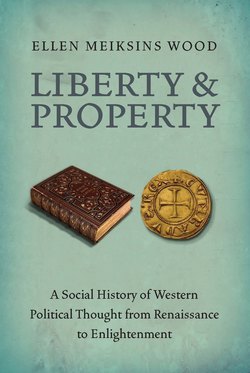Liberty and Property

Реклама. ООО «ЛитРес», ИНН: 7719571260.
Оглавление
Ellen Wood. Liberty and Property
Отрывок из книги
LIBERTY AND
A Social History of Western Political Thought
.....
While the Revolution may have been ‘bourgeois’, then, there was little that was ‘capitalist’ about it. If, in its political principles and in its legacies it went far beyond the ‘bourgeois’ impulses that first set it in motion, there remained strong continuities between the ancien régime and the post-revolutionary state. What is so striking about the post-revolutionary period, throughout much of the nineteenth century in France, is the persistence of the tax/office structure, in which appropriation took the form of direct exploitation of peasant producers by the state through taxation. Not only did the economy continue to be based on small-scale agricultural production, but the state continued to relate to that production as a primary exploiter of direct producers through the medium of taxation, for the benefit of office-holders.
One has only to read Marx’s account of nineteenth-century France in the 18th Brumaire to see how persistent this formation was. He speaks of the ‘immense bureaucratic and military organization’, a ‘frightful parasitic body’, in which the ‘material interest of the French bourgeoisie is most intimately imbricated. It is that machine which provides the surplus population with jobs, and makes up through state salaries for what it cannot pocket in the form of profits, interest, rents and fees.’ This bourgeois tradition would continue well into the twentieth century, if not until today, in a culture where state office would remain the highest career, with a tradition of mandarinism, dominated by a hereditary elite of office-holders and their exclusive academies.
.....